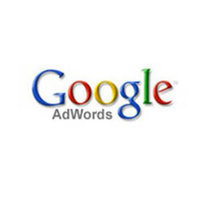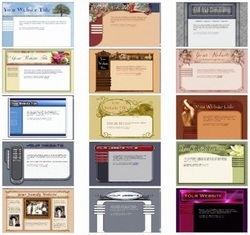Erica Verrillo's Blog, page 108
December 28, 2012
Your New Year's Resolution

There are only a few days left of the old year. You are already thinking ahead to new goals, new projects, and you are determined to accomplish them. Knowing writers, I can predict what your New Year's resolutions will be:
I will write 1000 words a day (after all, Hemingway did it, and he was a journalist)
I will finish my novel (it's been seven years … )
I will start my novel (it's been ten years … )
And so on.
This year, I am going to make the whole breast-beating, self-flagellating, bound-to-fail experience of New Year's resolutions a lot easier for you. Here's your resolution:
I will research my market.
(My computer has a Big Brother camera on it. I can see the expression on your face.)
Writers don't like marketing and promoting their work. But that's not because it is a venal, distasteful, and ungentlemanly task. It's because we don't know how to do it. Marketing belongs to the business world, not the artistic world. As a writer, you prefer to wear only one hat. As a writer in today's entertainment-driven world, you can't.
Knowing your market – who will buy your book, how many people there are in this group, and how you will reach them – is the key to success. Even if you are lucky enough to get an agent who will sell your work to a publishing house, the first thing he or she will ask you is: What is your market? How many people are in it? How will you reach them? What books compete with your own? How is your book different? Why will people want to buy it? (A tip: The answers to these questions should go in your query letter.)
In order to address these questions (and you must be able to), you need to do some research. Go to Amazon and type in keywords to locate books similar to yours. What is their ranking? Go to a Barnes & Noble. What's on their shelves? (Believe it or not, print publications still matter.) Are you offering something new? Will your book fill a gap?
Who will buy your book? That depends on what you are writing, of course. Let's say you are writing a romance. (Half of all fiction being published today is comprised of romance novels.) Generally speaking, women buy romance novels – more specifically, women who don't have a lot of time. Romance novels are short, therefore your market consists of women who have small children and/or time-consuming jobs and a curtailed sex life.
If you want to reach this market, you have to know where these women go. What websites are they visiting, what blogs do they read, what books do they buy? If you can't answer those questions off the top of your head, go to: http://www.invesp.com/blog-rank/Romance_Novels and take a look.
No matter what you write, there is a market for your work. If you want people to read what you write, spend an hour a day researching who those people are.
And last, but not least, read books that are designed for entrepreneurs, because that is who you are!
Suggested reading:
One Simple Idea: Turn Your Dreams Into a Licensing Goldmine While Letting Others Do the Work by Stephen Key. Key's book is about licensing ideas for products, so you may not think what he has to say applies to you. Keep in mind that when a publisher picks up your book, you have essentially licensed an idea. Read what Key has to say about marketing, and think about how to apply his methods to your own goals. Go to worldcat.org and type in the title of Key's book. Then, click on “preview this item.” You can read the first 20% of Key's book right there.
Published on December 28, 2012 05:57
December 23, 2012
The Grammar Mistake That Will Kill Your Career
 "Please step away from the keyboard! Now!!!"
"Please step away from the keyboard! Now!!!" Every writer knows that grammar and spelling errors are unforgivable in a manuscript. That's why we seek outside editors and send our manuscripts to proofreaders. What writers don't realize is that making simple mistakes in an email to an agent, or a query letter, or even on a blog can cost you your career. (You never know who might be reading your blog.)
I'm not talking about spelling the word “precede” wrong. After all, it's the most misspelled word in the English language, and chances are your agent won't know how to spell it either. I am talking about a little word. It's its.
It's is a contraction of “it is.” Its is a possessive (e.g. its teeth.)
An apostrophe in the wrong context is a catastrophe.
A while ago, I took a seminar in grant writing. I was the director of a non-profit at the time, and knowing how to write a grant was essential to the future of my project. The leader of the seminar asked the group if we knew how grantors made their decisions. We replied, “On the merits of our projects.” (Like writers, non-profits believe that good work counts.) She immediately set us straight. “They hold up the first page of each application to the light,” she said. “If they see white-out [this was in the day of typewriters], they throw the entire application away. They repeat that process, going through each page, until they get a pile of applications with no corrections. Those are the ones they read.”
The moral of the story: Don't give anybody an excuse to throw you out. Use your spell check on everything you write, check all your punctuation marks, and watch those apostrophes.
They'll get you every time.
Published on December 23, 2012 07:24
December 20, 2012
Everything I Did Wrong, Part 3: Writers Are from Venus, Agents Are from Mars

I didn't have an agent for my first book, which, in light of the disastrous contract I signed, was a mistake. So, when I completed a second book I decided to contact one. After reading the manuscript she gave me a call, agreed to represent me, and asked me for the following:
A photograph
A biography
Log lines
Flap copy
A synopsis
A marketing plan
How I intended to reach my prospective audience, and
Whether I knew someone famous, like the Pope, who would endorse my book
I was too embarrassed to admit that I didn't know what half the things on her list were, so I muddled through as best I could. (The Pope would not give me an endorsement, even though my flap copy was nothing short of miraculous.) My ignorance was astonishing, although understandable: I was a writer.
Writers, especially fiction writers, focus on crafting our work. After a long and difficult labor, we give birth to novels. The last thing we need while in the throes of contractions (no pun intended) is for the midwife to ask, “What kind of diapers would you like? Cloth or disposable?” As far as we are concerned, our job is finished when we push out the last line.
This is simply not how the publishing world works. Before contacting an agent, you must not only have a finished work (edited, proof-read, and ready for the printer), you must understand the industry. That means knowing what is going on in the publishing world, knowing what is going on in the book selling world, and knowing what is going on inside your agent's head. In order to do that you must go to your local library and pore through issues of Publisher's Weekly, Writer's Digest, and The Writer. You must read blogs kept by agents and editors in order to familiarize yourself with the lingo of the trade: proposal-to-publish forms, subsidiary rights, and promotion potential. You must become vertically integrated.
Right about now, you are beginning to feel put-upon. Why should you learn everybody else's trade? You have your own. Besides, the publishing industry is complicated, frustrating, and, to put it mildly, embattled. That is why so many writers turn to epublishing. It lures us into its embrace with promises of instant gratification.
The inconvenient truth is that there is no way to avoid the hard work of promotion – which, in turn, requires an understanding of the publishing industry. Although epublishing is rapidly gaining ground, print publishers still have the advantage of pedigree. There is nothing that qualifies you more as an author than to be published by one of the big houses. In order to get a publisher, you need an agent. And in order to get an agent, you must not only be able to write the perfect query letter and shmooze at conferences, you must get a handle on how agents think.
The best way I know of understanding what goes on in the minds of agents is to read their books. Buried somewhere in the musty stacks of your local library is a book written by Michael Larsen called Literary Agents: How to Get and Work with the Right One for You. It was published in 1986 (a year in which you may have been a fetus), but it is still the best exposition of what goes on in an agent's mind that I have ever read. In spite of the passage of decades, and a supposed revolution in publishing, the way agents think has not changed.
Agents expect to have a salable book. What constitutes salable? Anything that can be successfully pitched. Work on your pitch before you contact an agent.
Agents expect you to be “professional.” In the publishing world that means, “Don't take up too much of my time.” If you need to have your hand held, don't contact an agent (yet).
Last, but not least, agents expect you to want to make money. (You'd be surprised how many writers simply want to express themselves!) Agents expect you to convince them “that you harbor a consuming lust for success and that you are irresistibly driven to do whatever it takes to make your books sell.”
Until you can build up some lust, and can back it up with a plan that demonstrates that you know what to do with it, hold off on contacting an agent. They aren't in the business for love, they are in it for money – and they can't make any if you don't.
Essential reading for understanding how agents think :
Jeff Herman, Guide to Book Publishers, Editors, & Literary Agents. (Sourcebooks, 2011) Read the agents' descriptions of the client from hell. (That's you!)
Chuck Sambuchino, ed. 2013 Guide to Literary Agents. (Writer's Digest Books, 2012)
Actually, any year of this publication will be sufficient. Make sure you read the sections on advice to writers (from agents).
Michael Larsen. Literary Agents: How to Get and Work with the Right One for You. (J. Wiley, 1986.)
The updated edition of Larsen's book, How to Get a Literary Agent (Sourcebooks, 2006), has more information, but reveals less of the inner workings of the Martian mind
First posted on Blogging Authors 12/19/12: http://www.bloggingauthors.com/
Published on December 20, 2012 07:32
December 12, 2012
Why Google Adwords is (and isn't) a Waste of Time

Whenever you do a Google search, you will notice the top and bottom entries are ads. Google Adwords, an advertising tool created by Google, allows anybody to post an ad – for a price. The price is determined by how much you are willing to pay for someone to click on your ad. This is known as pay-per-click advertising, and is Google's main source of revenue.
It's ingenious, really, when you think about it. Advertisers are willing to take a gamble that people who click on their ad are interested enough to purchase a product. And, even if they don't click, thousands of people have at least seen the ad. All the better if it includes an eye-catching picture.
When Hostmonster offered me a free $100 of Adwords for my new website (which was doubled by joining Linkedin), I jumped at the chance. I called Google Adwords, and an obliging representative posted several attractive ads for my book. A few days later, another helpful representative called and, for an hour and a half, tutored me in all the details of how to track my campaign – daily budget, click-through rate (CTR, the percentage of people clicking after viewing your ad), the success of differently phrased ads, keywords, and many more sources of statistics.
It was complicated. It was taxing. And it was a completely inefficient way to market a book.
Time for some stats. My CTR (click-through rate) was .02%, which means that of the 200,000 times my ad appeared on Google, only twenty people clicked on it. Even Google admitted that this was an abysmal CTR. Nonetheless, I persisted. Twenty people was still twenty people after all. However, when I looked at my Google Analytics stats, I found a 50% bounce rate. That meant that of the twenty people actually visiting the site, half of them left immediately. Only ten people stayed long enough to read anything. Of those ten, one bought the book.
I was delighted that one person had bought the book. But, if I had paid for those ads, it would have cost me $200 to sell a book worth $2.99 (of which I made $2.10). By anybody's reckoning that's a waste of money. In fact, unless you sell a product that costs over $200, it would be a waste of money for anyone to use Google Adwords. Most ads receive an average of 200 clicks before someone actually purchases a product. (Which means I was actually doing pretty good with my one sale.)
So, why would any sane writer want to promote a book on Google Adwords? Provided you don't pay for it, Google Adwords is an excellent way of judging which buzz words the public will respond to. (As it turned out, the ad that got the most clicks was the only one I had written myself.) Knowing what the public will respond to is quite important when you are writing your press release, query letters, and for all your promotional activities.
This page will help you to find keywords that are high, medium and low competition. (Your competition determines how much you will pay for clicks. The lower the competition, the less you pay.) But, here's the “beauty part.” This page tells you how many people searched those key words globally and locally. The more people who search on a given keyword or phrase, the more worth it has as a promotional tool. (But examine those keywords carefully; some are too vague to be useful.)
https://adwords.google.com/o/Targeting/Explorer?__c=1000000000&__u=1000000000&ideaRequest&defaultView=2
You can also use this tool to name a website, or a blog – or even a book!
Thank you, Google.
Resources:
http://blog.monitor.us/2012/05/google-adwords/
This article will give you an idea of how complex a Google Adwords campaign really can be. If you can make it half way through this explanation, I will give you a prize. (Please don't take me up on that.)
Published on December 12, 2012 08:43
December 2, 2012
Finding an Agent – Look before you leap
 "Just take another step back, my dear."
"Just take another step back, my dear." For those of us who either don't like to shmooze, or don't have the opportunity (see: Shmooze or You Lose 11/12/12), finding an agent can be quite a challenge. But whether your childhood sweetheart is married to Donald Maass, or you are a dead ringer for Brad Pitt, you'll need to do some research before you sign on.
Getting an agent is somewhat like getting a spouse. It has to be a good match to work. First, does the agent represent your genre? An agent actively looking for romance novels may not be interested in your treatise on postage stamps. Second, do you want a hands-on agent who will critique your work and constantly ask you to revise it, or do you prefer someone who lets you drive? Last, but not least, does the agent charge “reading fees”? If so, call off the wedding.
Your first stop for locating an agent is AgentQuery.com. As one of its many valuable services, AgentQuery maintains a database of 900 reputable literary agents. And it's free! If you are interested in researching a specific agent, you can search by name. You can also search by genre, AAR (Association of Authors' Representatives) membership status, and whether they are actively seeking clients. Agents who appear on this list are reliable. (AgentQuery also provides a useful blogroll of agent, editor and other publishing industry blogs.)
Once you have made a list of agents who represent your genre, go to their websites to get an idea of how they operate. How many authors do they represent? How many sales have they made this year? What kind of books have they sold, and to whom? This will give you an idea of how active they are, and also how overbooked. An agent with a lot of clients will not have time for you. An agent who sells books exclusively to publishers you never heard of is someone who does not have contacts in the major publishing houses.
Your next step is to look up agents in Jeff Herman's Guide to Book Publishers, Editors, & Literary Agents. (Many library systems have copies, but if yours doesn't you can always go to a Barnes and Noble and browse.) Although there are other guides to literary agents, this book is the best source of detailed information. Why? Because it reveals their attitudes. Would you want to marry a person who describes suitors as “blowhards, bigots, braggarts, bitches, and bastards”? Admittedly, some writers fall into one or more of those categories, but chances are good that an agent who uses that much alliteration has a short fuse. Not all agents in Herman's book are members of the AAR, so make sure you cross-check them on AuthorQuery.
If you have been approached by an agent, and don't know if they are legitimate, always go to their website. Do they even have one? If they don't list their clients, or have any sales, you can check them out on Preditors and Editors, a website maintained by the Science Fiction Writer's Association (SFWA), to see if there have been any legal actions against them, or other complaints.
Armed with this knowledge, you can now shmooze.
(And remember: A writer without a literary agent is still a writer. An agent without clients is out of business. They need you more than you need them.)
Photo credit: Jared Platt.
Published on December 02, 2012 06:47
November 29, 2012
Everything I Did Wrong, Part 2: Designing An Author's Website

It occurred to me some time during the last century that it would be a good idea to put up a website. I did so and, at the time, thought it was brilliant – not that I could do a thing with it. Much like my hair, it required a professional. Everything was written in some kind of code.
Several years later, when it dawned on me that having an up-to-date website might be advantageous (rather than one that reflected my activities of a decade earlier), I again looked for someone who knew this mysterious code. I placed an ad on guru.com. “Wanted: A computer-type person who can put up a five-page website for me. I write books.” Within three days I was deluged by dozens of emails. Soon, the offers – ranging from $699 to $4000 – numbered in the hundreds. I began to receive staticky Skype calls late at night. (Apparently, India is in a different time zone.) “What exactly do you want?” they asked. “SEO? Joomla?Slideshows?” I couldn't answer any of their questions. I despaired.
This was my first mistake: I assumed that other, more technical, people would be able to help me design my website. My second mistake came shortly afterward.
Realizing that I knew nothing about websites, I began to investigate. I discovered that there were free websites available everywhere, and that they were based on templates. What's more, these templates required no computer skills whatsoever. They were designed for people like me. (And they were used by people wanting to charge me $699 for one page.)
I began to look at templates. Oh, lord. There were thousands of them. I spent days looking at WordPress templates, Google templates, free templates of all kinds. My head hurt. This was my second mistake. I assumed that I could pick a template. I couldn't – there were too many of them, and none of them seemed appropriate for a writer.
Then the realization hit me. I was going about this all wrong. There were other authors in the world, and they had websites! All I needed to do was find one that I liked and copy the format.
I ended up not doing that, but looking at what other authors had done helped me to choose a template on Weebly, which I did in a less than an hour. (And it was free!)
This is what I did. I went to http://www.smartauthorsites.com/ and looked at all their clients' websites until I found one that was appropriate for me. (I also browsed on the Author's Guild site and elsewhere, but Smart Author Sites was the most productive.) Then, I went to Weebly, which is the easiest website builder for the technically challenged, and located a template that was closest to the one I had found. From there it was easy. I imitated. (And, unless reinventing the wheel is your idea of fun, so should you.) This is what other authors do:
The first page should consist of a photo of you that shows your personality – according to your subject matter (children's book authors, smile! and look trustworthy; serious literary novelists, look deep). There should be a short, interesting bio. This page is also where you can put the latest professional news about yourself. (Upcoming publications, endorsements, speaking engagements, and so on.)
The second page is about your books: images of the covers, one paragraph descriptions, and where to purchase.
Page three is an excerpt from your latest work.
Page four can be a selection of your published writing – essays, short stories, if you have written them. Or page four can be an events calendar.
The fifth page is your blog.
“Contact us” comes last. You must always make yourself available to potential readers, agents, and Nobel Prize nominations.
Even if you have not yet been published, you need an author's website. At the very least, put up your first page (bio and photo), a blog, and a contact page. Unless it is a chapter from your forthcoming book, do not post samples of your unpublished writing for people to critique!! There are forums for that sort of thing. Your website is where you must come across as a professional. Take yourself seriously, and others will as well.
Published on November 29, 2012 09:51
November 22, 2012
Easy Pie Crust
 This recipe is from the 1946 edition of the Woman’s Home Companion Cookbook, which my mother received as a wedding gift in 1950. I have made countless tender, cholesterol-free, melt-in-your-mouth pie crusts with this recipe - in less time than it took to write it down. (Makes one crust. Double for two.)
This recipe is from the 1946 edition of the Woman’s Home Companion Cookbook, which my mother received as a wedding gift in 1950. I have made countless tender, cholesterol-free, melt-in-your-mouth pie crusts with this recipe - in less time than it took to write it down. (Makes one crust. Double for two.)1 cup flour
1/2 tsp salt
1/4 tsp baking powder
1/3 cup safflower oil
3 tablespoons cold water
Sift flour, salt and baking powder together in a bowl. Beat oil and cold water together with a fork until well blended. (I do this in a measuring cup.) Add liquid to solid mixture and mix with a fork just enough to blend. Do not overmix. Form into a ball and place on a sheet of wax paper. Flatten slightly with your palm. Place another sheet of wax paper over the dough and roll until it is just larger than your pie pan. (Do not attempt to roll out the crust on a floured board. It will stick.) Carefully, peel back the top sheet of wax paper. Invert the crust (with bottom sheet of wax paper) over the pie pan. Gently peel back the remaining sheet of wax paper. Assemble in pie pan and bake. No chilling is necessary, however you can store the crust in the fridge once it has been rolled out and formed in its pie pan. If you chill the dough before rolling it out, it tends to be too stiff.
I don’t know of an easier, healthier, or more fool-proof method of making a pie crust.
Published on November 22, 2012 07:55
November 19, 2012
How to List Your Blog on Technorati
 Listing your blog on Technorati is a little complicated, but it is well worth it. With over a million blogs, Technorati is the mother of all blog directories. The entire registration system is automated, so if you run into problems nobody will help you. This means you have to follow all of their instructions to the letter.
Listing your blog on Technorati is a little complicated, but it is well worth it. With over a million blogs, Technorati is the mother of all blog directories. The entire registration system is automated, so if you run into problems nobody will help you. This means you have to follow all of their instructions to the letter. If you follow these steps, you shouldn't have any problems registering your blog.
1) Write a new blog entry, but do not publish it.
2) Go to the Technorati website and create an account ("join").
3) Add your blog title, URL, blog feed URL, and description.
You will receive an email almost immediately with the subject line “Technorati Claim in Progress.” Click on the link provided in the email for instructions. Scroll down to “Claim Status.” Click “check claim.” You will see this note:
Claim Status – (your blog)
Technorati will need to verify that you are an author of the blog by looking for a unique code. Please put the following short code [ … ] within a new blog post and publish it. This code must appear in the published post and it must also appear in your corresponding RSS feed once published. Once it is published, use the "Verify Claim Token" button on this page to tell Technorati your blog is ready for Technorati to verify the claim token and proceed to final review.
4) Copy and paste the 12-symbol token into the body of your new unpublished post. (It must be an unpublished post for the process to work!)
5) Publish your post. Then go back to your account and click “verify your claim token.” You will get a confirmation email in about 10 minutes.
Note: You may receive the following rejection:.
Thank you for submitting your blog claim on Technorati. Unfortunately, we have encountered a problem reading your site's data. Please log into technorati.com and go to http://technorati.com/account/ to update any necessary site information and continue the claim process.
Don't panic, just check that your token appears on your published blog and not just on your blog editing page. Go back to your account, and repeat the process.
6) At this point sit back and wait a few minutes for your next email, which will be:
Thank you for submitting your blog claim on Technorati. We have successfully crawled your blog and found the claim token, and your claim is now awaiting review.
7) The next email you receive will be this confirmation:
Congratulations, your claim is now complete! Please allow 24 to 48 hours for Authority and recent posts to begin showing for your site now that it has been successfully claimed. Once they are there, we will update your site's Authority once per day.
At first you may not see your site listed in the Technorati Blog Directory for all of the categories you've selected. As you write blog posts around those topics, you should see your Topical Authority in those categories begin to rise.
In my experience, it takes roughly a day for a blog embedded in an author's website to get confirmed. It takes a grand total of 15 minutes – start to finish – for Technorati to confirm a Blogger site (yet another reason to duplicate your website blog on Blogger).
Good luck!
Published on November 19, 2012 09:11
November 16, 2012
Flogging your Blog
 If Venus could do it, so can you! You've set up your author's website (you have, haven't you?), and you've begun a blog. You are happily blogging away two or three times a week, secure in the belief that every time you hit “Publish” your thoughts are winging their way through the blogosphere, reaching millions of people who are hungry for your knowledge, wit and/or wisdom.
If Venus could do it, so can you! You've set up your author's website (you have, haven't you?), and you've begun a blog. You are happily blogging away two or three times a week, secure in the belief that every time you hit “Publish” your thoughts are winging their way through the blogosphere, reaching millions of people who are hungry for your knowledge, wit and/or wisdom.Wrong.
The millions are not hungry. If anything, they are overfed. According to NM Incite (that's Nielson/McKinsey) – a company formed to “discover industry-specific consumer insights and build relevant, differentiated and emotionally engaging brands … with the vision that real-time, authentic consumer expression in social media transforms how marketers build strong brands, create passionate and engaged brand communities, and ultimately achieve superior sales outcomes” (so many buzz words, so little content! I am sure you could write a better sentence than that!) - there were 181 million blogs around the world by 2011. Five years earlier there were only 36 million. Imagine how many there are today.
On second thought, don't imagine. At an average yearly increase of 36 million there are now at least 217 million blogs. But that's not nearly as impressive as the number of blogs posted every day. (If you really want to get depressed, you can go to Worldometers and watch, in real time, the daily world blog count – as they are being posted. It's hypnotic. Go there now.)
(One hour later.)
Where were we? Ah, yes.
If you actually want people to read your blog, then you will have to “drive” them to it, either in your cybercar, or using a cyberwhip (whatever makes you happy). Do the following:
Set up your blog as part of your author's website. Then duplicate your blog on a separate blog, preferably Blogger. (Blogger is an ugly glitch-filled mess, but Wordpress is hard for Google search engines to find, and you are too old for Tumblr).
Blog regularly so search engines can find you.
Once you have accumulated ten blogs, start registering your blog on blog directories. (Register your independent blog, not the one on your website. The automated software that the largest blog directories use cannot detect embedded blogs.) Here are two good lists of blog directories:
http://www.best-web-directories.com/blog-directories.htm
http://www.searchenginejournal.com/20-essential-blog-directories-to-submit-your-blog-to/5998/
Write guest blogs. Obviously, you want to post on the blogs that get a million viewers a day (the “A list” blogs), but realistically speaking that is not going to happen. So submit to those who blog about your subject matter. Technorati, which is one of the best places to register your blog, has a huge list. More important, they have a popularity index. Use their index to find the most popular blogs. Then see if any of them post on your subject. Check to see if they take submissions.
If you don't have a specific area to focus on, and are just a wonderful all-round writer, then write for Blogcritics. (They have great SEO, which in the cyberworld is better than sex.)
Shmooze. Just like writers, bloggers have conferences. Meet them, make friends. Here is a list of conferences. http://mommybloggerdirectory.com/conferences. (There are many lists out there, but this list will give you a good idea of the types of conferences, and where they are held.)
If all these steps sound a lot like how to break into the publishing world (fierce competition, shmoozing, submissions, rejections followed by an overwhelming sense of futility), then, by George, you've got it, you've really got it! But do not despair. The fabulous thing about the Great Equalizer (aka the Internet) is that it really is a democracy. You get to run your campaign, and other people get to vote for you.
ZXCECH6CAG8S (Ignore that man behind the curtain!)
More information:
Buzz in the Blogosphere: Millions More Bloggers and Blog Readers
http://blog.nielsen.com/nielsenwire/online_mobile/buzz-in-the-blogosphere-millions-more-bloggers-and-blog-readers/
Technorati's annual reports on the state of the blogosphere. Lots of interesting information here.
http://technorati.com/state-of-the-blogosphere/
Wow! Just look at those numbers go!
http://www.worldometers.info/blogs/
Published on November 16, 2012 09:48
November 12, 2012
Getting an agent: Shmooze or you lose
 I just happen to have my manuscript with me!
I just happen to have my manuscript with me! I frequently get phone calls and emails from people who want to know how to get published. They figure there must be some trick of the trade, some wisdom, that I can impart. A winning query letter. A perfect pitch.
The nasty truth is that getting published is basically about connections and luck. (Just type “how I got my agent” into a google search and you'll see what I mean.)
This is how I got published. I wrote a book. Then, not knowing a thing about how to get it into a publisher's hands, I called a former boss of mine who was the editor of an academic journal. One of his friends happened to have a sister who was a publisher. The friend made a call to his sister as a favor to my former boss. Then the publisher called me. “What have you got?” she said. I described the book, and she said, “I'll send you a contract.” That was it.
This story may fill you with self-righteous indignation and/or despair. After all, if you haven't been published, stories like mine will just piss you off. But wait, there's more.
My publisher turned out to be a dud. But, several years later, when I had written a work of fiction and had mailed out hundreds of query letters to agents who replied with one-sentence form rejections on coffee-stained paper (they aren't even doing that anymore), it dawned on me that my publisher had used an agent to sell my book to a second publisher. Voila! I already had an agent.
I called the agent and informed her that she was my agent. She seemed to believe me, because she said, “Send me your manuscript.” And, after a couple of years, my novel got published.
That is also how my second, third and fourth books got published. No query letters, no agent's “auctions,” just one phone call to the right person at the right time.
This is how the entire system works. You don't get an agent by sending out query letters. You get an agent by knowing a guy who knows a guy who can hook you up. That is also how you get a manager, and a publisher, and an editor. It's a sad fact of life – but getting your work into print is all about who you know.
Don't jump off a bridge – yet. You can meet people in the industry rather easily.
There are numerous conferences and workshops that are attended by agents and writers. Go to one and talk to them. Join writers' groups and talk to other writers. (Don't even think of contacting editors directly. I did that once. It surprises me that I am still alive.) Get out there and meet people, physically, in the flesh. Let them know you are a real human being. You never know. Some of them may like you.
Here are some good sites for finding appropriate conferences (research them carefully!). Please read foliolit's article on conference etiquette first. It's got some wonderful tips.
Now, get out there and shmooze!
http://foliolit.com/resources/writers-conference-etiquette/
Must-read article on etiquette at conferences.
http://www.agentquery.com/resource_cs.aspx
Agent Query's excellent list of conferences.
http://writing.shawguides.com/
Shaw Guides' great list of conferences with detailed information.
Published on November 12, 2012 14:39



